|
We are pleased to share with you an Earth Day essay written by Thomas Wentworth, PhD, inspired by his experience at the "Three Sisters Swamp" of the Black River in eastern North Carolina. Tom is Alumni Distinguished Undergraduate Professor, Emeritus, Department of Plant & Microbial Biology, North Carolina Statue University. I visited BLK227 on a Tuesday for an interview. BLK227 is a Baldcypress tree (Taxodium distichum for the botanists) in the Three Sisters Swamp section of the Black River, a bit west of Burgaw, North Carolina. BLK227 was so named by Dr. David Stahle, who runs the Tree Ring Laboratory in the Department of Geosciences at the University of Arkansas in Fayetteville. BLK227 holds the current world record for documented age of any Baldcypress tree, 2,629 years old this year. That’s a minimum age, by the way, because Dr. Stahle had to core BLK227 at a height of 10 feet above the swamp floor, and it is unknown how long it takes for a Baldcypress seedling to reach 10 feet in height. That minimum age is impressive - that’s 629 years Before the Common Era. BLK227’s age firmly establishes Baldcypress as the oldest wetland tree species on Planet Earth, and number five on the worldwide list of the oldest known continuously living, sexually reproducing, non-clonal tree species based on dendrochronology, the scientific study of tree rings. < click "Read More" below right >
2 Comments
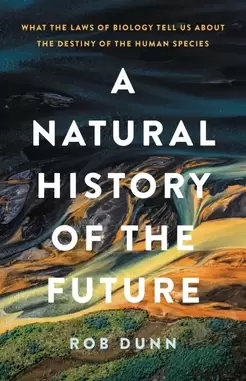 We recommend for your reading a thought-provoking new book by NC State University professor of applied ecology and entomologist Rob Dunn – “A Natural History of the Future: What the Laws of Biology Tell Us About the Destiny of the Human Species” (published in late 2021). This is the seventh book authored by Dunn, whose books and eloquent authorship are being compared to that of E.O. Wilson. Rather than asking whether nature will survive us humans, Dunn suggests it is better to ask whether we will survive nature. Despite our efforts to control nature, life has its own rules and no amount of human tampering can rewrite those basic rules. Dunn explains fundamental laws of ecology, evolution, and biogeography and shows that life will be changed but not repressed by our human activities. Instead, Dunn shows why it is our own human future and destiny that hang in the balance. Some excerpts from Rob Dunn’s conclusions in “A Natural History of the Future”: “In the near future, parts of Earth will be much more pleasant for extremophilic life-forms but much less for humans. We can find ways to survive such change. Just not forever. Eventually, we will go extinct. All species do. This reality has been called the first law of paleontology. The average longevity of animal species appears to be around two million years, at least for taxonomic groups for which the phenomenon has been well studied. If we consider just our species, Homo sapiens, that means we may still have some time. Homo sapiens evolved roughly two hundred thousand years ago. We are still a young species. This suggests that if we last an average amount of time, our road is still long. On the other hand, it is the youngest species that are most at risk of extinction. Like puppies, big-eyed and not yet wise, young species are prone to fatal mistakes.” continued . . . The following is excerpted from a National Geographic magazine essay (Sept. 2020 issue) and from Enric Sala’s book, The Nature of Nature: Why We Need the Wild (2020). (Britain’s Prince Charles and Harvard biologist E.O. Wilson furnish the book’s introductions.)
“If we degrade habitats, animals become stressed and shed more viruses. On the other hand, habitats with diverse species harbor less disease. . . . Nature controls viruses – filtering them out of the system – that we’re only now recognizing. . . . "We are all in this together, all species on the planet. So what can we do? While the world has stepped up to help those in need during the COVID-19 outbreaks, we might also start thinking about how to prevent the next zoonotic pandemic. "We have seen, again and again, that even though we don’t know what most of them do, all wild animals have important jobs that keep our biosphere running. If we’ve learned anything from our study of natural ecosystems as it applies to these recent diseases, it’s that instead of exterminating wild animals to stop the passage of disease to people, we should do the opposite: We should safeguard the natural ecosystems that are their homes and, if needed, help set them back on their path to maturity through rewilding. "If we degrade habitats, animals become stressed and shed more viruses. On the other hand, habitats with diverse microbial, plant, and animal species harbor less disease. Biodiversity dilutes any viruses that emerge and provides a natural shield that absorbs the fallout from pathogens. "Clamping down on the illegal trade of wildlife, ending deforestation, protecting intact ecosystems, educating people about the risks of consuming wildlife, changing the way we produce food, phasing out fossil fuels, and transitioning to a circular economy: these are the things we can and must do. "Even if it’s just for selfish reasons—for our own survival—now more than ever, we need the wild. A healthy natural world is our best antivirus.” 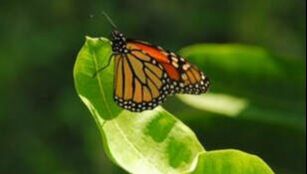 Photo by Tom Earnhardt Photo by Tom Earnhardt Nick Haddad, previously a professor of ecology at NC State University and presently senior ecologist with the W.K Kellogg Biological Station in Michigan, recently authored a fascinating and thought-provoking book, The Last Butterflies: A Scientist’s Quest to Save a Rare and Vanishing Creature (Princeton University Press, 2019). His quest involved determining which of half-a-dozen butterfly species is most at risk of extinction—regrettably, most of them barely clinging to survival in southern U.S. habitats. <<continued....>> 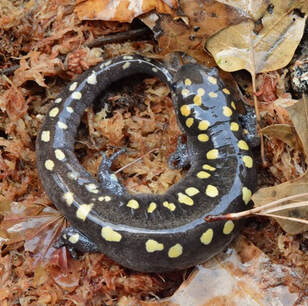 Photo by Tom Earnhardt Photo by Tom Earnhardt Populations of the world’s wild animals have fallen by more than 50 percent in recent decades and humanity is to blame. The popular news magazine, THE WEEK, reported on February 22, 2019, that the swelling human population (now 7.5 billion and mushrooming) has already had devastating impacts on the Earth’s wildlife. We’ve driven thousands of species to the edge of extinction through habitat loss, overfishing and hunting, trophy animal collection, introduction of harmful invasive species, toxic pollution, and climate change. Over the past 40 years, the number of wild animals–mammals, birds, reptiles, amphibians, insects, and marine life–have plunged by 50 percent. The World Wildlife Fund (WWF) estimates that populations of higher-order vertebrate animal species have decreased by an average of 60 percent since 1970. <<continued . . .>> This year, with clear evidence that the Trump Administration is jeopardizing many U.S. environmental conservation and protection programs and policies, with hugely damaging consequences, Gary E. Machlis, former National Park Service science advisor (and Clemson University professor of environmental sustainability), and Jonathan B. Jarvis, retired NPS career professional and national director from 2009 to 2017, co-authored an important and inspirational book. The Future of Conservation in America: a Chart for Rough Water (University of Chicago Press) asserts that we are in a period of “rough water,” affecting many environmental assets and conservation programs. The authors identify three major environmental and social threats (and the dangerous irresponsibility of denying them) confronting America: climate change, species extinction, and economic inequality. Actions are required to navigate through the very rough waters facing us. It is essential to assure that the conservation movement is understood by Americans (and especially by young people) as critically relevant to public health and interest. A general re-commitment to environmental conservation and protection is necessary. <<continued>>
|
When we see land as a community to which we belong, we may begin to use it with love and respect.... Conservation, viewed in its entirety, is the slow and laborious unfolding of a new relationship between people and land." There is in fact no distinction between the fate of the land and the fate of the people. When one is abused, the other suffers. From the PresidentSCP President Chuck Roe looked at land conservation along the route of John Muir's "Southern Trek." About ViewpointThis blog offers views of our Board and partners. We invite your viewpoint on the following questions: Archives
April 2024
Categories
All
|

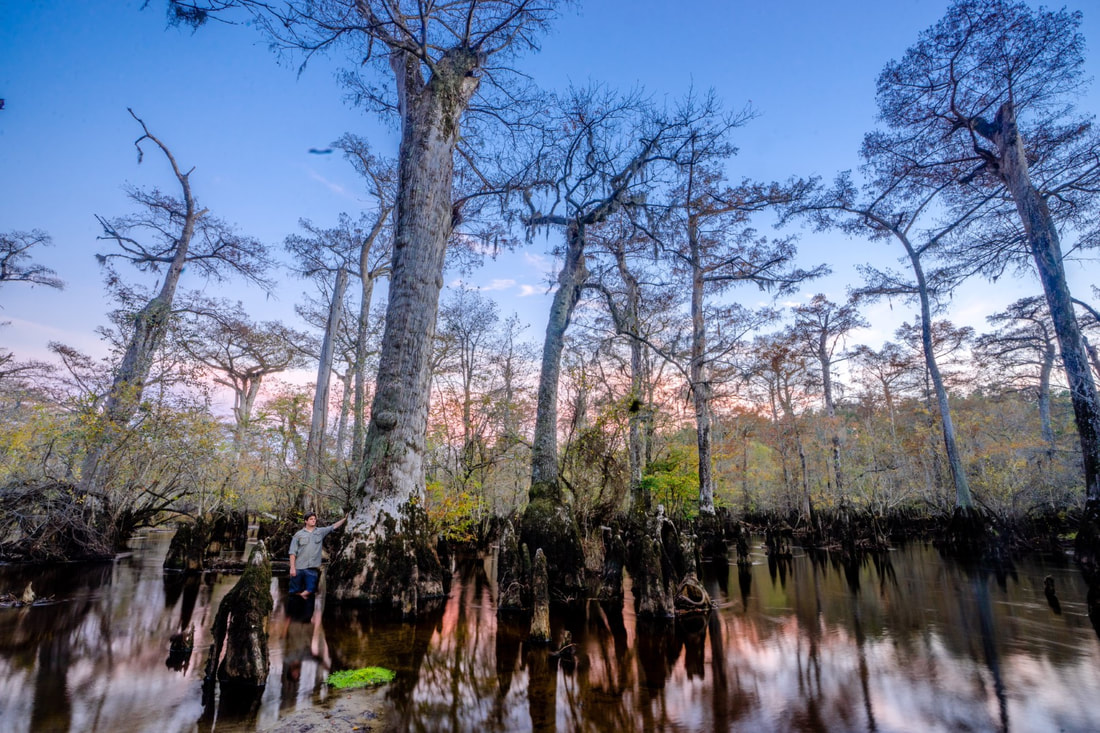
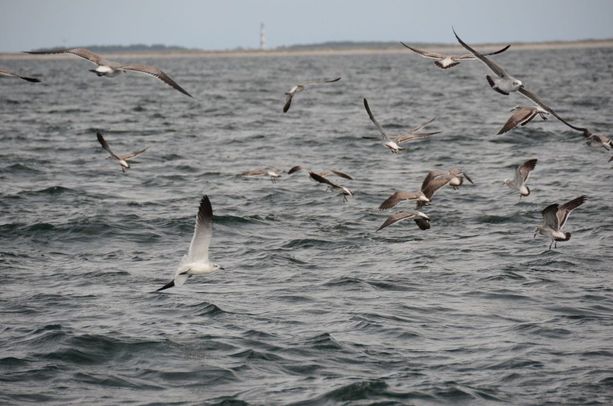
 RSS Feed
RSS Feed